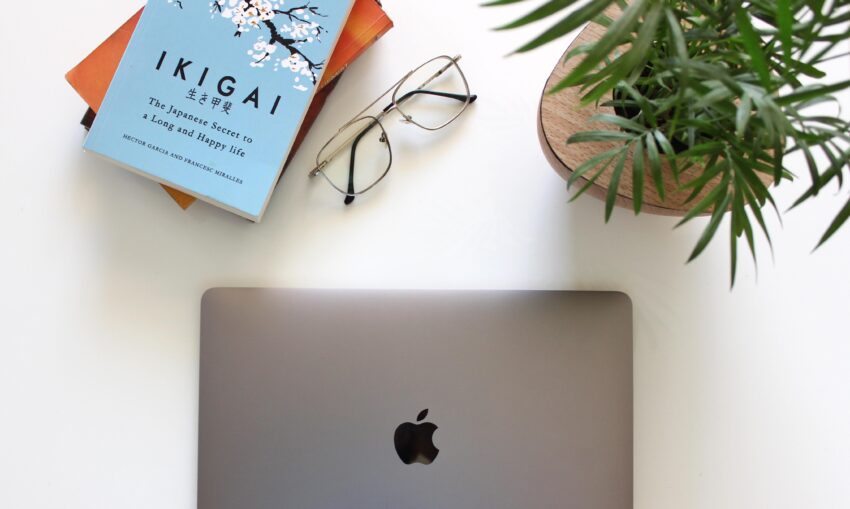“Ikigai: The Japanese Secret to a Long and Happy Life” by Hector Garcia and Francesc Miralles offers many insightful ideas for finding purpose, happiness, and fulfillment in life. Here are some of the best ideas from the book:
1. The concept of Ikigai: The book introduces the concept of ikigai, which is the Japanese term for “a reason for being” or “a reason to get up in the morning.” According to Author, finding your ikigai is essential to living a happy and fulfilling life.
To find your ikigai, you need to identify what you love, what you are good at,
what the world needs, and what you can be paid for.
2. Fight for yourself: Existential frustration arises when our life is without purpose or with skewed purpose.
He who has a why to live for can bear with almost any how.
Viktor Frankl in Man’s Search for Meaning
In German concentration camps, psychiatrists confirmed that the prisoners with the greatest chance of survival were those who had things they wanted to accomplish outside the camp, those who felt a strong need to get out of there alive.
Existential crisis, is typical of modern societies in which people do what they are told to do, or what other do, rather than what they want to do. Sunday Neurosis, for eg, is what happens when, without obligations and commitments of the workweek, the individual realizes how empty he is inside. He has to find a solution. Above all, he has to find his purpose, his reason for getting out of bed – his ikigai.
3. The Morita Therapy:
It is a form of psychotherapy that was developed by Shoma Morita, a Japanese psychiatrist, in the early 20th century. In the Ikigai book, Morita therapy is described as a way to overcome anxiety and depression by accepting and embracing difficult emotions and experiences, rather than trying to avoid or modify them. According to Morita therapy, emotions are a natural and necessary part of the human experience, and trying to suppress or ignore them can lead to psychological distress. The therapy encourages individuals to accept their emotions and allow them to naturally pass, without trying to change or control them.
The therapy involves four stages:
- Acceptance: In the first stage, individuals are encouraged to accept their current state of mind, without trying to change or control their emotions. The therapist helps the individual to understand that emotions are natural and that it is normal to experience ups and downs.
- Action: In the second stage, individuals are encouraged to take action towards their goals, even if they don’t feel motivated or inspired. The therapist helps the individual to identify their values and goals and create a plan of action, taking small steps towards achieving them.
- Endurance: In the third stage, individuals are encouraged to endure difficult emotions and experiences without trying to avoid or escape them. The therapist helps the individual to develop coping skills and resilience, so that they can handle difficult situations without becoming overwhelmed.
- Reflection: In the final stage, individuals are encouraged to reflect on their experiences and emotions, in order to gain insight and wisdom. The therapist helps the individual to understand the lessons that can be learned from difficult experiences and how they can use this knowledge to grow and develop.
4. Pursuing flow activities: The book suggests that pursuing flow activities, which are activities that fully engage your attention and give you a sense of accomplishment, can help you find meaning and satisfaction in life. Flow activities might include hobbies, work, or other tasks that require your full attention.
If we want to get better at reaching a state of flow, meditation is an excellent antidote to our smartphones and their notifications constantly clamoring for our attention. Meditation generates alpha and theta brain waves. We all carry a spa with us everywhere we go.
Write all the activities that drive you to flow and then ask yourself these questions:
- What do the activities that drive me to flow have in common?
- Why do those activities drive me to flow?
- Do you flow more when doing things that require you to move your body or just to think?
In the answers to these questions you might find the underlying ikigai that drives your life.
5. The 80% Secret: Hara Hachi Bu is a dietary philosophy from the Japanese island of Okinawa, which is known for having one of the highest life expectancies in the world. The philosophy translates to “eat until you are 80% full“. According to the Ikigai book, the Hara Hachi Bu philosophy is based on the idea that overeating is harmful to our health and wellbeing, while practicing mindful eating and stopping before we are too full can lead to better digestion and longevity.
By adopting the Hara Hachi Bu philosophy, one can cultivate a sense of self-control, which is considered a fundamental aspect of Ikigai.
An alternative to following 80% rule on a daily basis is to fast for 1-2 days each week. The 5-2 diet recommends two day of fasting (consuming less than 500calories every week and eating normally on other 5 days.
Overall, “Ikigai” offers many valuable ideas and insights for finding purpose, happiness, and fulfillment in life. By embracing these ideas and principles, readers can live a more meaningful and satisfying life.
You can check out the book here
To get the free ebook of this wonderful book, you can drop your request in the comment section.


